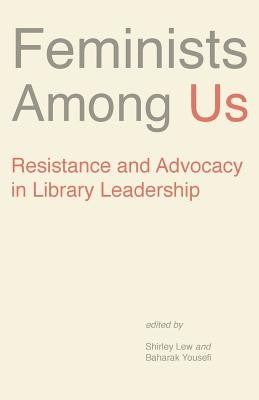
- We will send in 10–14 business days.
- Publisher: Library Juice Press
- Year: 2017
- Pages: 196
- ISBN-10: 1634000277
- ISBN-13: 9781634000277
- Format: 14 x 21.6 x 1.1 cm, minkšti viršeliai
- Language: English
- SAVE -10% with code: EXTRA
Feminists Among Us (e-book) (used book) | bookbook.eu
Reviews
Description
Feminists Among Us: Resistance and Advocacy in Library Leadership makes explicit the ways in which a grounding in feminist theory and practice impacts the work of library administrators who identify as feminists.
Recent scholarship by LIS researchers and practitioners on the intersections of gender with sexuality, race, class, and other social categories within libraries and other information environments have highlighted the need and desire of this community to engage with these concepts both in theory and praxis.
Feminists Among Us adds to this conversation by focusing on a subset of feminist LIS professionals and researchers in leadership roles who engage critically with both management work and librarianship. By collecting these often implicit professional acts, interactions, and dynamics and naming them as explicitly feminist, these accounts both document aspects of an existing community of practice as well as invite fellow feminists, advocates, and resisters to consider library leadership as a career path.
EXTRA 10 % discount with code: EXTRA
The promotion ends in 22d.08:09:16
The discount code is valid when purchasing from 10 €. Discounts do not stack.
- Publisher: Library Juice Press
- Year: 2017
- Pages: 196
- ISBN-10: 1634000277
- ISBN-13: 9781634000277
- Format: 14 x 21.6 x 1.1 cm, minkšti viršeliai
- Language: English English
Feminists Among Us: Resistance and Advocacy in Library Leadership makes explicit the ways in which a grounding in feminist theory and practice impacts the work of library administrators who identify as feminists.
Recent scholarship by LIS researchers and practitioners on the intersections of gender with sexuality, race, class, and other social categories within libraries and other information environments have highlighted the need and desire of this community to engage with these concepts both in theory and praxis.
Feminists Among Us adds to this conversation by focusing on a subset of feminist LIS professionals and researchers in leadership roles who engage critically with both management work and librarianship. By collecting these often implicit professional acts, interactions, and dynamics and naming them as explicitly feminist, these accounts both document aspects of an existing community of practice as well as invite fellow feminists, advocates, and resisters to consider library leadership as a career path.


Reviews